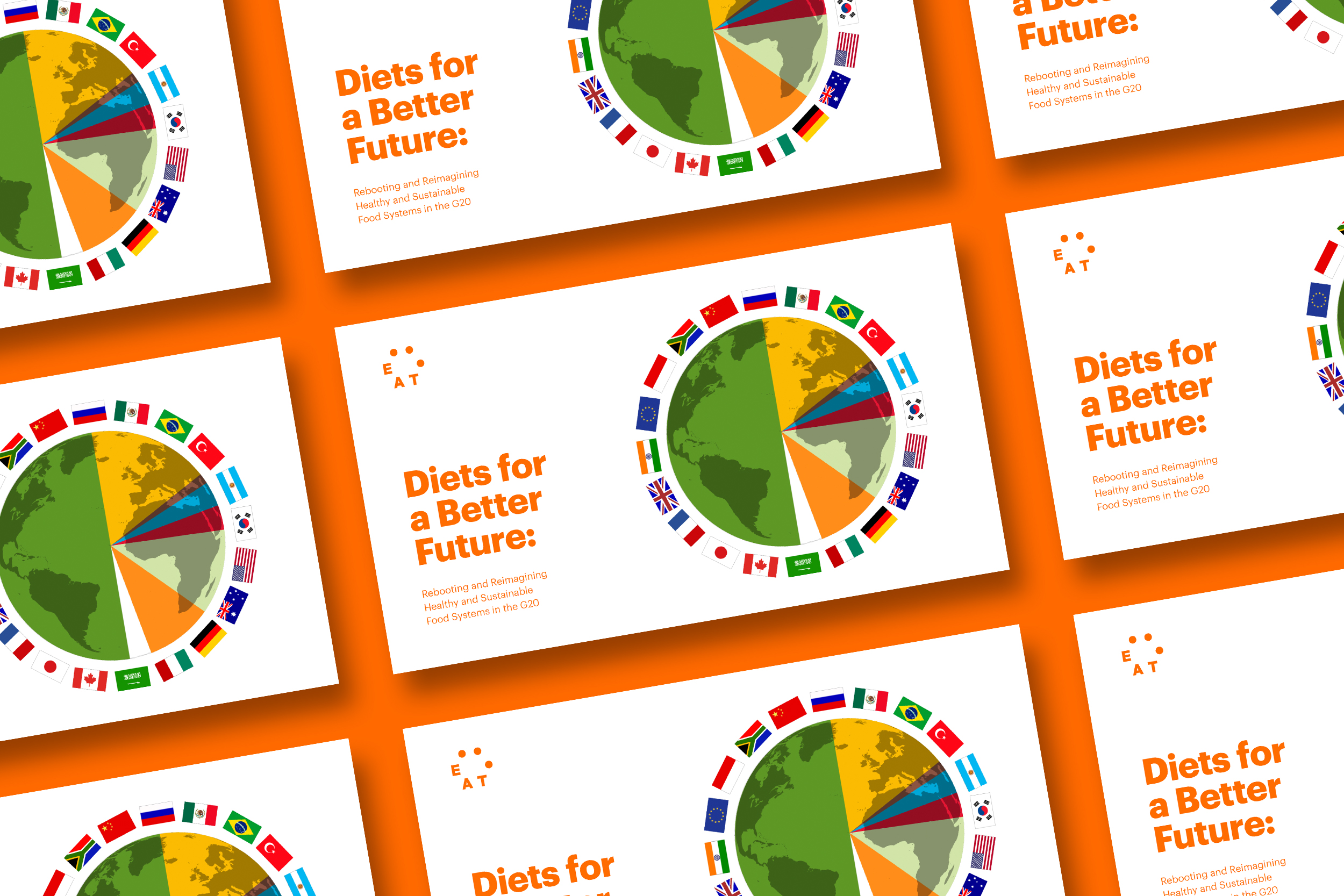Diets for a Better Future
A report into the leading role G20 countries can and must take to realize the changes required for a healthy and sustainable world.
Read The ReportG20 diets have a disproportionate impact on our climate and health. Who is leading and what is needed to ensure the necessary greenhouse gas emission cuts are made?

Dr. Jonathan Foley, the Executive Director of Project Drawdown, outlines why this pressing issue should be at the front of our minds when tackling climate change.
Frequently asked questions.
Why is this report so important?
We know a lot about this issue from a global perspective and over the past year several reports have outlined how the global food system needs to transform. This report, however, begins to explore this issue at the country level, with a specific focus on the need for the G20 to lead.
How important is it that we shift to healthy and sustainable diets?
It’s fundamental. Whether we are worried about climate change, the biodiversity crisis, inequality or pandemics, shifting diets is central. Thankfully, the world is beginning to wake up to this fact and the COVID-19 crisis has again highlighted the fragility of the global food system. But more ambitious and rapid change is needed.
What sets this apart from similar reports?
This is one of the first reports to quantify and compare national dietary guidelines and whether they are ambitious enough to achieve the Paris Agreement. We also focus on the G20 and the important leadership role they play in achieving healthy and sustainable diets for everyone on the planet.
Why does this report focus on G20 countries?
The G20 plays an outsized role in global food related emissions. Of the current carbon budget for food, the G20 is using approximately 75% and adoption of current consumption patterns would exceed the planetary boundary for food by 263%. If we truly feel that every single person on the planet has a right to healthy and enough food, then the G20 must step up and lead the way by reducing their food related greenhouse gas emissions.
Do national dietary guidelines really affect what we consume?
National dietary guidelines are more than mere guidelines. They can also be used to determine the public procurement of food, guide public health initiatives and educational programs, and are a key component of public health policy. However, national dietary guidelines will not be effective if the foods they recommend eating are not affordable to all citizens. Therefore, affordability must be elevated as a priority along with health and environmental sustainability and national dietary guidelines must be coherent with food and agriculture priorities.
Why is this report so important? ×
We know a lot about this issue from a global perspective and over the past year several reports have outlined how the global food system needs to transform. This report, however, begins to explore this issue at the country level, with a specific focus on the need for the G20 to lead.
How important is it that we shift to healthy and sustainable diets? ×
It’s fundamental. Whether we are worried about climate change, the biodiversity crisis, inequality or pandemics, shifting diets is central. Thankfully, the world is beginning to wake up to this fact and the COVID-19 crisis has again highlighted the fragility of the global food system. But more ambitious and rapid change is needed.
What sets this apart from similar reports? ×
This is one of the first reports to quantify and compare national dietary guidelines and whether they are ambitious enough to achieve the Paris Agreement. We also focus on the G20 and the important leadership role they play in achieving healthy and sustainable diets for everyone on the planet.
Why does this report focus on G20 countries? ×
The G20 plays an outsized role in global food related emissions. Of the current carbon budget for food, the G20 is using approximately 75% and adoption of current consumption patterns would exceed the planetary boundary for food by 263%. If we truly feel that every single person on the planet has a right to healthy and enough food, then the G20 must step up and lead the way by reducing their food related greenhouse gas emissions.
Do national dietary guidelines really affect what we consume? ×
National dietary guidelines are more than mere guidelines. They can also be used to determine the public procurement of food, guide public health initiatives and educational programs, and are a key component of public health policy. However, national dietary guidelines will not be effective if the foods they recommend eating are not affordable to all citizens. Therefore, affordability must be elevated as a priority along with health and environmental sustainability and national dietary guidelines must be coherent with food and agriculture priorities.
This report builds upon a growing body of research pointing to the sweeping benefits of shifting diets
Our resources connect science with real-world solutions, helping decision makers turn knowledge into action and support healthy, fair and sustainable food for all.

